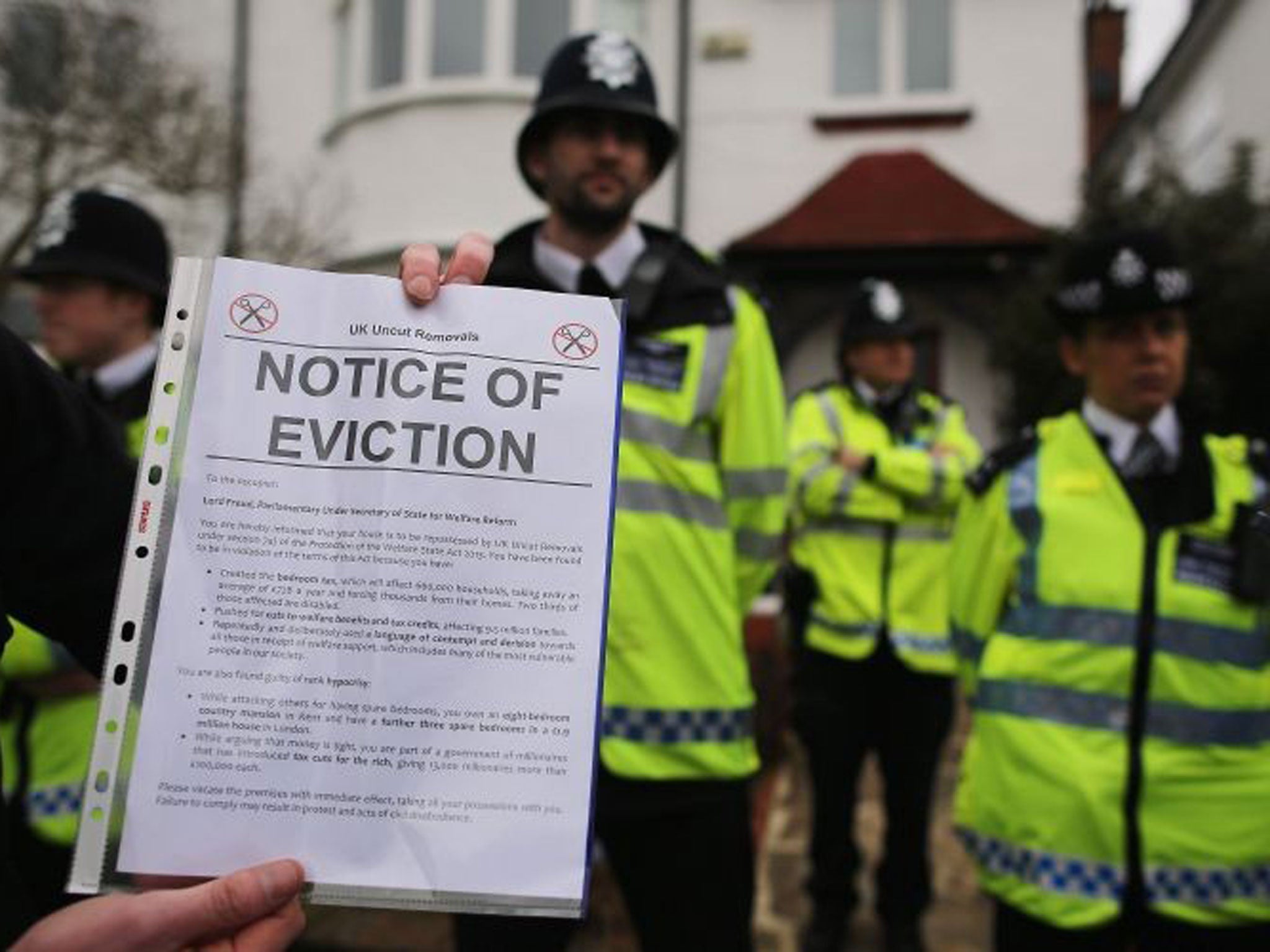Eviction notices to struggling tenants up by a quarter

Welfare cuts have sparked a dramatic increase in the number of eviction notices issued by landlords, a new survey reveals.
Between April and November, landlords served nearly 100,000 eviction notices to tenants in social housing, some of whose rent is paid by housing benefit, which was reduced in recent welfare reforms. This represents a 26 per cent increase on the same period last year, according to a survey by Inside Housing magazine. Notices seeking possession (NSPs) do not always lead to eviction, but actual evictions also increased.
Sam Lister, policy and practice officer at the Chartered Institute of Housing, said that “welfare reform is causing real difficulty” to those in the rental market, meaning that the need for a tougher approach was “sadly, not surprising”. He added that it would be “unfair to tenants who are paying their rent” if landlords were unable to recover rent owed to them, leaving them “unable to meet their commitments”.
The survey of 113 councils, housing associations and arm’s-length management organisations, found that 99,904 eviction notices were served between April and November compared with 79,238 in the same period in 2012.
Actual evictions following court action have not risen as much as NSP. From April to November they numbered 2,530, up from 2,488 last year.
Of all housing providers, Birmingham City Council served the most NSPs, issuing 10,814 compared with 5,938 last year, an 82 per cent increase. Barnsley-based Berneslai Homes, responsible for nearly 19,000 homes, witnessed the biggest percentage increase in eviction notices issued – 2,184, a 190 per cent rise.
Cornwall Council was responsible for a 172 per cent increase, and another big rise was by the Longhurst Group, a housing association that has more than 17,900 properties across the Midlands and the east of England, with a 170 per cent jump.
A Longhurst spokesperson said: “We recognise the difficulties for some of our tenants given the impact of low wages, rising living costs, increases in personal debt and welfare reform.” She stressed, however, that the group needs to protect its income.
Subscribe to Independent Premium to bookmark this article
Want to bookmark your favourite articles and stories to read or reference later? Start your Independent Premium subscription today.

Join our commenting forum
Join thought-provoking conversations, follow other Independent readers and see their replies